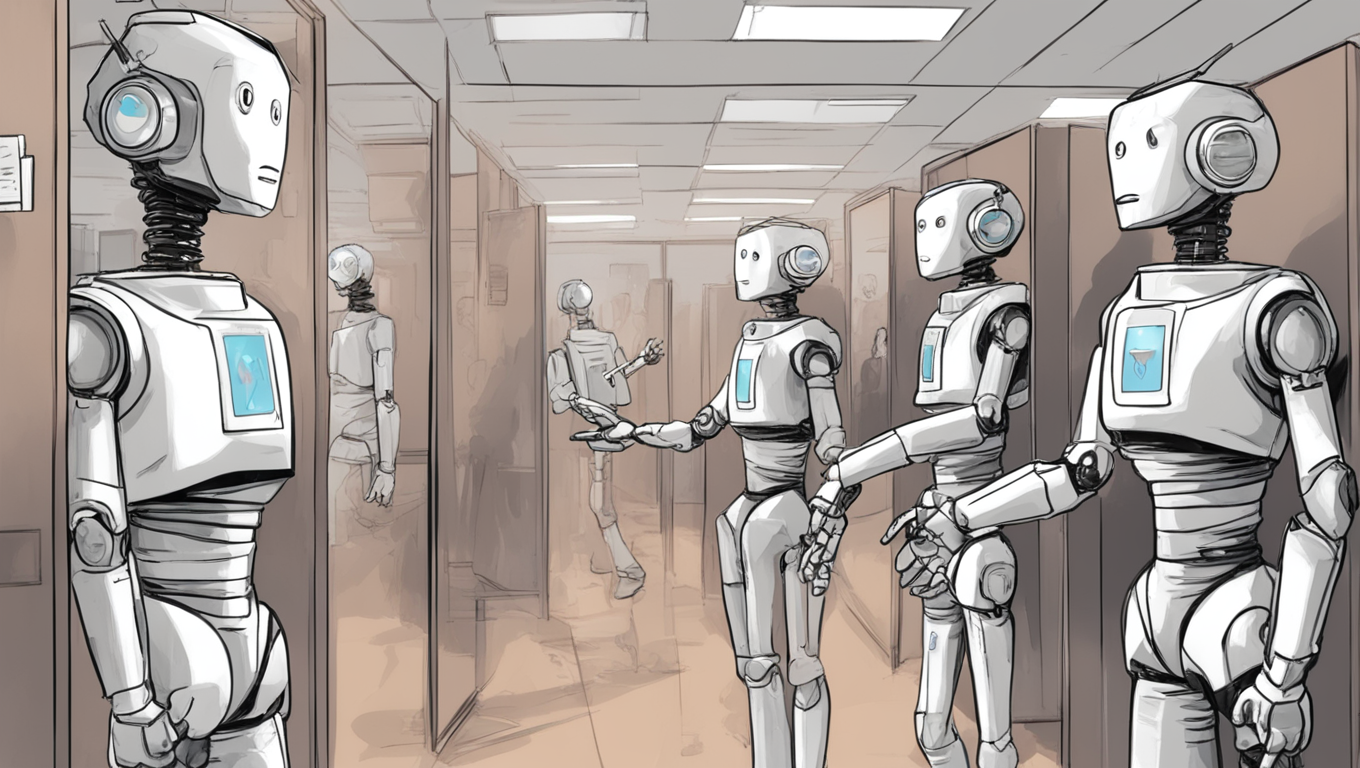The CEO of Klarna Voices Concerns About AI Disrupting 700 Jobs
February 28, 2024
Artificial Intelligence (AI) is once again in the spotlight as the CEO of e-commerce site Klarna, Sebastian Siemiatkowski, expresses concerns about its impact on the future of work. Klarna recently launched a new AI tool, powered by OpenAI, which has taken on the jobs of 700 human employees. The AI tool has already performed more than two-thirds of Klarna’s customer service chats, with a customer satisfaction score similar to that of humans and greater efficiency in resolving errands. This has led Klarna to anticipate a $40 million profit increase this year. However, Siemiatkowski emphasizes the need for a considerate and informed approach to navigate the potential societal disruption caused by AI.
“We are incredibly excited about this launch, but it also underscores the profound impact on society that AI will have,” Siemiatkowski stated. “We want to reemphasize and encourage society and politicians to consider this carefully and believe a considerate, informed and steady stewardship will be critical to navigate through this transformation of our societies.”
For Klarna’s customers, the introduction of the AI tool means access to a 24/7 customer service operation in multiple languages, including support for over 35 languages. However, the bigger question for many employees is whether AI will take away their jobs.
According to Viputheshwar Sitaraman, a tech consultant and AI speaker, AI is most effective when it works in conjunction with humans, rather than replacing them entirely. Sitaraman believes that AI will change job descriptions rather than eliminating jobs outright. For example, engineers may focus less on code writing and more on debugging and deployment, while doctors could collaborate with AI systems for diagnosing and creating treatment plans. Even lawyers could benefit from AI, streamlining the process of revising and building upon initial contract drafts. However, Sitaraman argues that most AI tools are not yet capable of replacing human workers entirely without human intervention.
Despite skepticism about AI’s capabilities, many experts believe that AI technology will continue to advance and merge into more sophisticated systems. Ryan Valles, co-founder of tech AI skill platform Interview Kickstart, compares the development of generative AI to the introduction of electricity, stating that massive changes in how we work and our productivity are inevitable. Valles believes that professionals who embrace AI-enabled work will have an advantage over those who resist change and risk being left behind.
The changes resulting from AI adoption are happening faster than some may anticipate. A McKinsey report predicts that by 2030, 70 percent of companies will have adopted at least one type of AI technology. The potential of AI has even caught the attention of President Joe Biden, who expressed concerns about the advancement of AI without proper oversight in an executive order last October. According to Biden, AI is the “most consequential technology of our time” and must be governed to realize its promise and mitigate risks.
As AI continues to disrupt industries and change the way we work, Klarna’s experience serves as a reminder of the complex implications and challenges that lie ahead. While AI offers numerous opportunities for efficiency and advancement, it is crucial for society and policymakers to approach this transformation with careful consideration and informed decision-making. The future of work is evolving, and it is up to us to navigate these changes responsibly.





Use the share button below if you liked it.